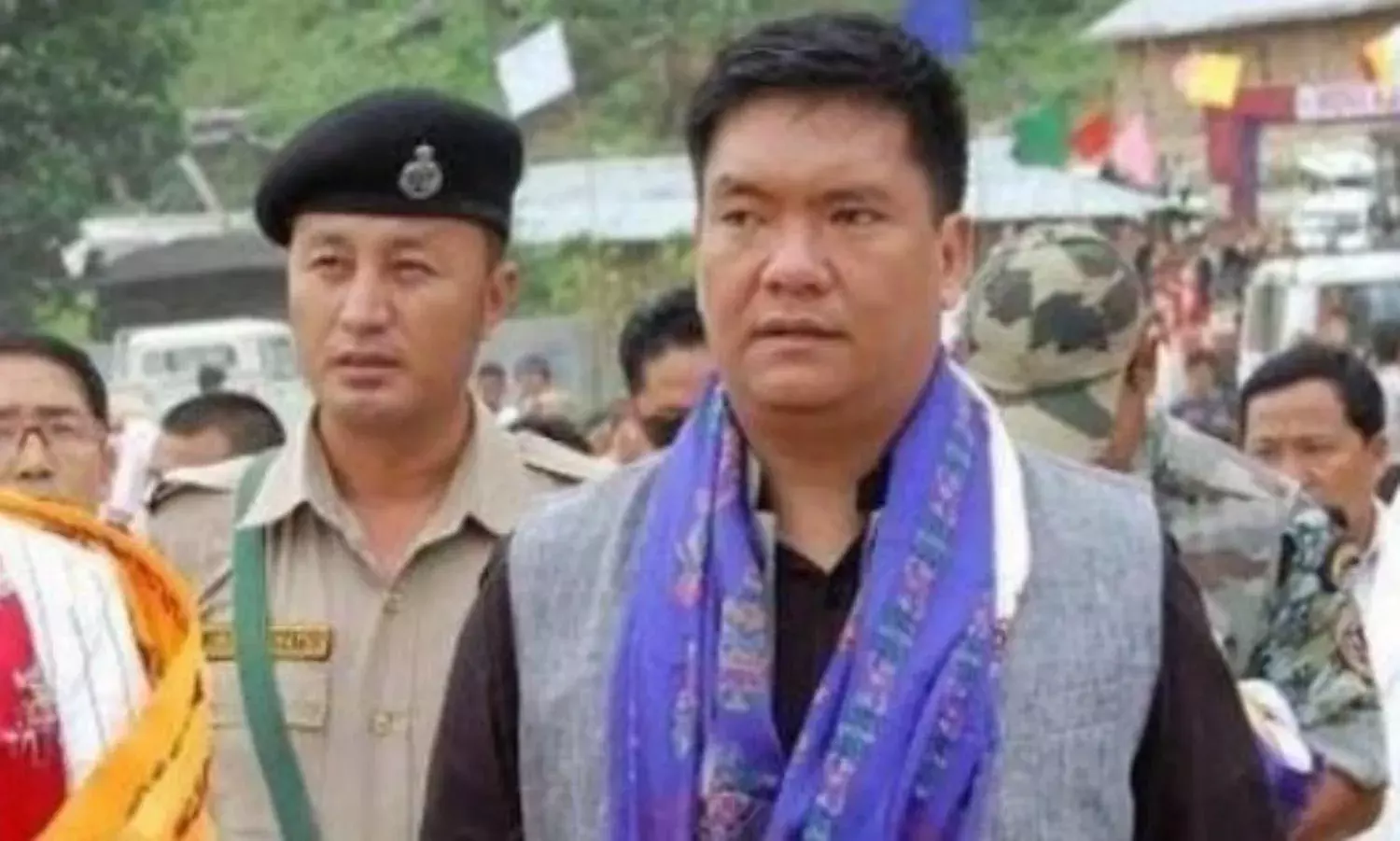Arunachal Divided Over CM Promise to Repeal Religious Act Next Assembly Session
RANJU DODUM

ITANAGAR: Arunachal Pradesh chief minister Pema Khandu on Thursday said that the controversial Arunachal Pradesh Freedom of Religion Act, 1978 is detrimental to secularism and will be brought up for repeal during the next Legislative Session.
He was speaking at the memorial service held for the late Benedictine missionary, Prem Bhai, who died ten years ago and was involved in missionary work in the state for 25 years.
The Arunachal Pradesh Freedom of Religion Act, 1978 was enacted when the state was still a union territory in an attempt to make “forceful conversion” of indigenous tribal communities illegal amidst concerns that Christian missionary activities could lead to a decline of indigenous faiths.
The Act states: “indigenous faith” means such religions, beliefs and practices including rites, rituals, festivals, observances, performances, abstinence, customs as have been found sanctioned, approved, performed by the indigenous communities of Arunachal Pradesh from the time these communities have been known and includes Buddhism as prevalent among Monpas, Membas, Sherdukpens, Khambas, Khamtis and Singphos, Vaishnavism as practised by Noctes, Akas, and nature worships including worships of Donyi-Polo, as prevalent among other indigenous communities”.
Unlike in most other predominantly tribal states of the Northeast, Christian missionaries made their entry relatively late in Arunachal Pradesh, although attempts had been made earlier during the British Raj.
The Act makes it illegal for anyone to convert a member of the indigenous tribal community of the state through “force, fraud, and inducement”. Those found ‘guilty’ of breaking the provisions of the Act could face imprisonment to the extent of two years and fine of up to Rs 10,000.
However, the existence of the Act has not meant that indigenous faiths are thriving, with the old Census 2011 records indicating that more than 30 percent of the state’s population is Christian, almost 30 percent Hindu, and a smaller number of Muslims.
The question of faith in Arunachal Pradesh is often hotly debated in the state. Christian groups often have to fight back criticism that missionary activities and conversions have led to the decline of indigenous religious practices, especially in the central belt of the state which is home to the Tani group of five tribes who traditionally worshipped Donyi and Polo- the sun and moon.
Over the years, there has been a revival of sorts amongst followers of indigenous faiths who receive the active support of the VHP and the RSS and have tried to institutionalise and formalise the practices of animist faiths.
News of a possible repeal of the Act has often been brought up in the past but has not been repealed to date.
On Thursday, Khandu said that “any misuse of the law leading to the torture of people could trigger large-scale violence in the state and could break Arunachal into pieces”.
A day after Khandu made the statement, reactions were quick to follow.
The Nyishi Indigenous Faith and Cultural Society (NIFCS), an organisation that concerns itself with preserving traditional faith systems and customs of the largest tribe in the state, Nyishi, said that the chief minister’s statement was “callous and irresponsible”.
An official statement from the organisation said that repealing the Act “will extensively damage the very basic structure of indigenous faith and culture of the state which is still languishing under the persistent and aggressive influences of the foreign cultures”.
It said that the number of people adhering to animist beliefs has been “marginalised” and that “no political parties has had the guts to enforce the Act”.
Criticising Khandu’s statement, the NIFCS said that the Act should instead be officially notified and implemented “to check the rampant conversion of innocent people of the state by allurement or fraudulent means”.
The Church, on the other hand, has welcomed the announcement.
The Arunachal Pradesh Catholic Association (APCA) said that Khandu’s announcement is a “positive”.
Toko Teki of the Arunachal Christian Forum (ACF) said welcomed the chief minister’s statement, and appealed to indigenous faith believers to not support “such draconian law”.
Speaking to The Citizen, Teki said that that the concerns of the indigenous faith groups and organisations is based on “misconceptions” and that the Church has never “officially given direction to individuals to not participate in tribal festivals”.
He also said that repealing the Act will help remove the perception that the BJP is an “anti-minority/Christian party”.
The party had formed the government in late 2016 following a year of political power struggle with the Congress and the regional People’s Party of Arunachal.
State BJP functionaries could not be reached for comments on the announcement.



